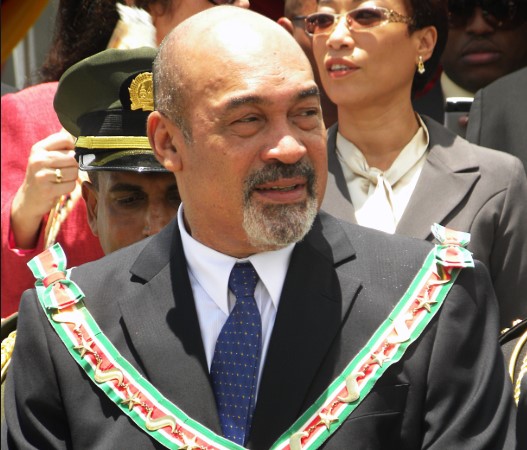UN experts welcome Suriname's court ruling against former President Bouterse
“The highest court that recently upheld the verdict and the Court that convicted a sitting President in November 2019 must be commended for their independence and courage,” the experts said.

UN experts* welcomed the recent decision by Suriname’s highest court, the Hof van Justitie, to uphold the 20-year prison sentence of former President Desiré Delano Bouterse for the torture and extrajudicial execution of 15 political opponents in 1982.
“The verdict demonstrates that there is no statute of limitations, special immunities for heads of State, or amnesties for serious human rights violations for crimes under international law, including enforced disappearances, torture and extrajudicial killings,” the experts said. “Despite the lapse of 41 years since the crime occurred, justice has finally been served to the victims.”
Bouterse and his co-accused were charged with the torture and extrajudicial execution of 15 prominent lawyers, journalists, soldiers, businessmen, academics and a trade union leader who were openly critical of the regime that brought him to power in a military coup in 1980. The victims were arbitrarily arrested, tortured and summarily executed. The executions were analysed in a 1984 visit and report by Amos Wako, the first UN Special Rapporteur on Summary or Arbitrary Executions, as the mandate was then known. Bouterse remained in power until 1987 and later served as President of Suriname from 2010 to 2020.
“The highest court that recently upheld the verdict and the Court that convicted a sitting President in November 2019 must be commended for their independence and courage,” the experts said.
In 2012, the country’s Parliament adopted an amendment to the 1989 Amnesty Law, which had the effect of granting President Bouterse and others amnesty for the 1982 crimes, leading to the suspension of the trial.
The amendment to the Amnesty Law was ruled unconstitutional and a Court in 2019 convicted then President Bouterse and sentenced him to 20 years imprisonment. On 20 December 2023, the verdict of the highest court in Suriname upheld this conviction. Despite an arrest warrant issued on 10 January, former President Bouterse has failed to turn himself in.
“Torture, enforced disappearance and extrajudicial executions are crimes under international law,” the experts said.
They stressed that investigations and prosecutions of such crimes should be conducted in accordance with relevant international standards and must aim to ensure that those responsible are brought to justice, to promote accountability and to prevent impunity, referring in particular to the Istanbul Protocol on the Effective Investigation and Documentation of Torture and Other Cruel, Inhuman or degrading Treatment or Punishment and the Minnesota Protocol on the Investigation of Potentially Unlawful Death. “The obligation to investigate and hold accountable perpetrators includes enforced disappearances,” they said.
“The highest court’s ruling is a tribute to the strength of rule of law in Suriname and the remarkable perseverance and tenacity of the victims’ families,” the experts said.
They noted that Suriname had set an example of accountability for serious human rights violations, irrespective of a defendant's status and the time elapsed since the crimes, which, due to their gravity, are not subject to any statute of limitations.
“The landmark decision must now be implemented without further delay and any convicted individual absconding should be immediately arrested,” the experts said.
- READ MORE ON:
- Suriname
- Desiré Delano Bouterse










